Absorption Of Vitamin B12 Requires The Presence Of:

Imagine a bustling marketplace, overflowing with vibrant fruits and vegetables, each packed with essential nutrients. Among them, a humble yet vital player: Vitamin B12. But simply consuming foods rich in B12 isn't enough. It's a bit like having the key to a treasure chest, but needing a special map to unlock its riches.
The absorption of Vitamin B12 is a complex process, crucially dependent on the presence of a specific protein called Intrinsic Factor (IF). This essential glycoprotein, produced by the parietal cells of the stomach, binds to B12, escorting it safely through the digestive system to the small intestine where it can finally be absorbed into the bloodstream.
The Intricate Journey of Vitamin B12
Vitamin B12, also known as cobalamin, plays a crucial role in numerous bodily functions. It is essential for nerve function, DNA synthesis, and the formation of red blood cells. A deficiency can lead to serious health problems, including anemia and neurological damage.
The journey of B12 from your plate to your cells is a fascinating one. It begins in the mouth, where B12 binds to proteins in food.
In the stomach, gastric acid and pepsin help release B12 from these proteins. This liberated B12 then binds to a protein called haptocorrin, also known as transcobalamin I, secreted in saliva and gastric juices. This binding protects B12 from degradation in the acidic environment of the stomach.
Intrinsic Factor: The Key to Absorption
As the stomach contents move into the small intestine, pancreatic enzymes break down haptocorrin, releasing B12. This is where Intrinsic Factor steps in as the hero of our story.
Produced by the parietal cells in the stomach lining, Intrinsic Factor eagerly binds to the now-free B12. This IF-B12 complex is resistant to further digestion and travels down to the ileum, the last part of the small intestine.
The cells lining the ileum have specialized receptors that recognize and bind to the IF-B12 complex. This binding triggers a process called endocytosis, where the complex is engulfed by the cells.
Once inside the cells, B12 is released from Intrinsic Factor and binds to another transport protein, transcobalamin II. This transcobalamin II-B12 complex then enters the bloodstream, delivering B12 to various tissues throughout the body.
Why Intrinsic Factor Matters
The importance of Intrinsic Factor cannot be overstated. Without it, B12 simply cannot be effectively absorbed, regardless of how much you consume. This is why conditions affecting the stomach lining or Intrinsic Factor production can lead to B12 deficiency.
One such condition is pernicious anemia, an autoimmune disorder where the body's immune system mistakenly attacks and destroys the parietal cells in the stomach. This results in a decreased or absent production of Intrinsic Factor.
Other conditions that can impair Intrinsic Factor production include gastritis (inflammation of the stomach lining), gastric surgery (such as gastrectomy or bariatric surgery), and certain medications that reduce stomach acid production, like proton pump inhibitors (PPIs) taken long term.
Recognizing and Addressing B12 Deficiency
Symptoms of B12 deficiency can be subtle and develop gradually over time. They can include fatigue, weakness, pale skin, shortness of breath, numbness or tingling in the hands and feet, difficulty walking, memory problems, and depression.
Early diagnosis and treatment are crucial to prevent irreversible neurological damage. A simple blood test can measure B12 levels and identify a deficiency.
Treatment typically involves B12 supplementation, which can be administered orally, intramuscularly (injection), or intranasally (nasal spray). In cases of Intrinsic Factor deficiency, oral supplements may not be effective, and B12 injections are often required to bypass the absorption issue.
Dietary Sources of Vitamin B12
B12 is naturally found in animal products, including meat, poultry, fish, eggs, and dairy. Vegetarians and vegans are at a higher risk of B12 deficiency and need to obtain B12 from fortified foods or supplements.
Fortified foods like breakfast cereals, plant-based milk alternatives, and nutritional yeast can be excellent sources of B12. However, it’s important to check the labels to ensure they are adequately fortified.
The National Institutes of Health (NIH) recommends that adults consume 2.4 micrograms of Vitamin B12 per day. Pregnant and breastfeeding women require slightly higher amounts.
Beyond Intrinsic Factor: Other Factors Affecting Absorption
While Intrinsic Factor is the most critical factor for B12 absorption, other factors can also play a role. These include the overall health of the digestive system, the presence of other nutrients, and certain medications.
Conditions like Crohn's disease and celiac disease can damage the small intestine and impair nutrient absorption, including B12. Furthermore, certain medications like metformin (used to treat diabetes) can interfere with B12 absorption.
Maintaining a healthy gut microbiome and ensuring adequate levels of other nutrients, such as calcium and iron, can also support optimal B12 absorption. Consult with a healthcare professional to determine the best approach for your individual needs.
Looking Ahead: Research and Innovations
Research continues to explore new and improved methods for B12 delivery and absorption. Scientists are investigating novel formulations, such as sublingual tablets and liposomal delivery systems, to enhance B12 bioavailability.
Furthermore, studies are exploring the potential of gene therapy to treat Intrinsic Factor deficiency and restore B12 absorption in individuals with pernicious anemia. These advances offer hope for improved B12 management in the future.
Understanding the intricate relationship between B12 and Intrinsic Factor empowers us to make informed choices about our health. By prioritizing a balanced diet, addressing underlying medical conditions, and seeking professional guidance when needed, we can ensure adequate B12 levels and maintain optimal well-being.
The quest to unlock the full potential of Vitamin B12 continues, promising a brighter and healthier future for all. Just like those vibrant fruits and vegetables in the marketplace, B12 holds the key to vitality – a key that Intrinsic Factor helps us unlock.
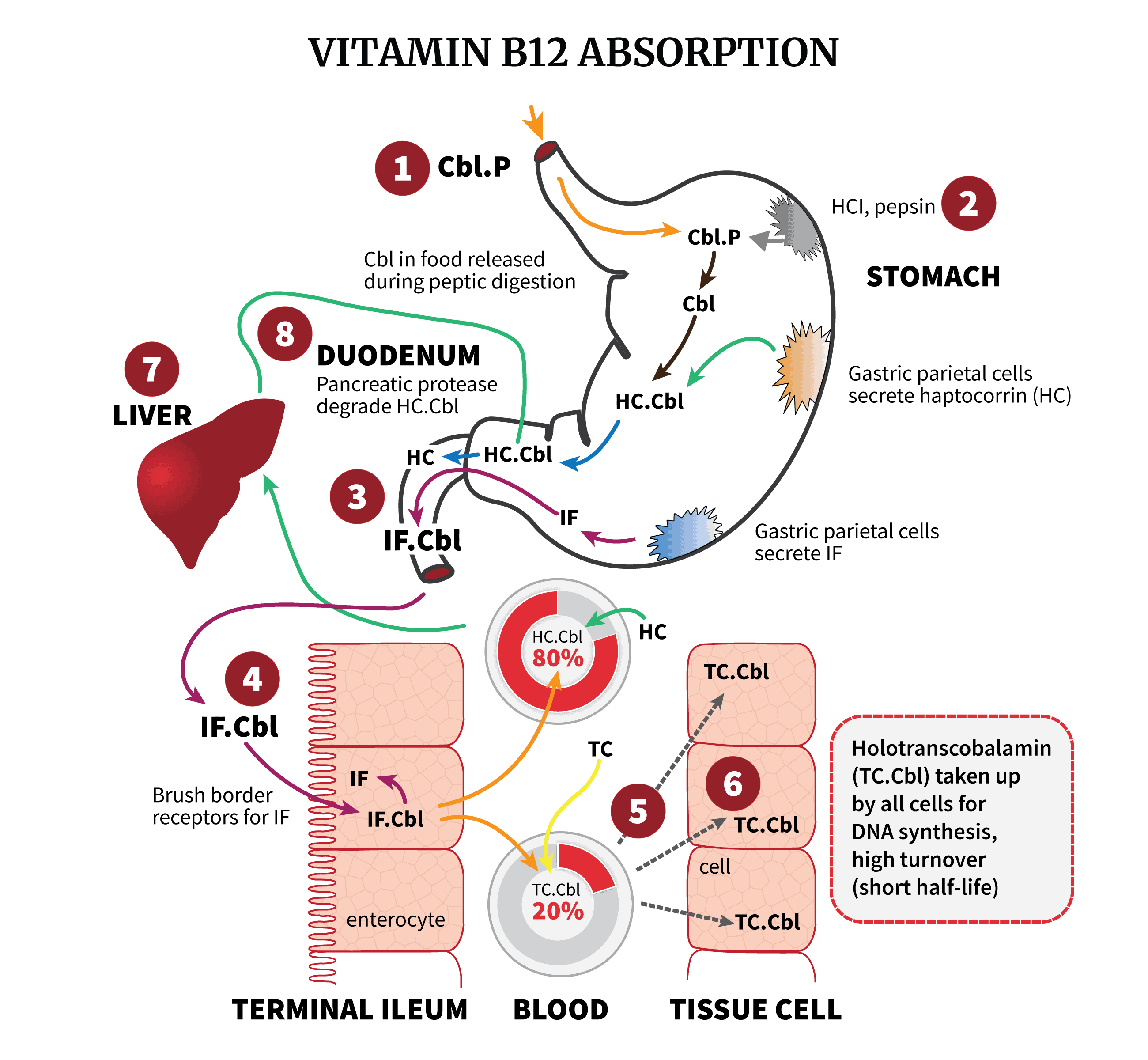
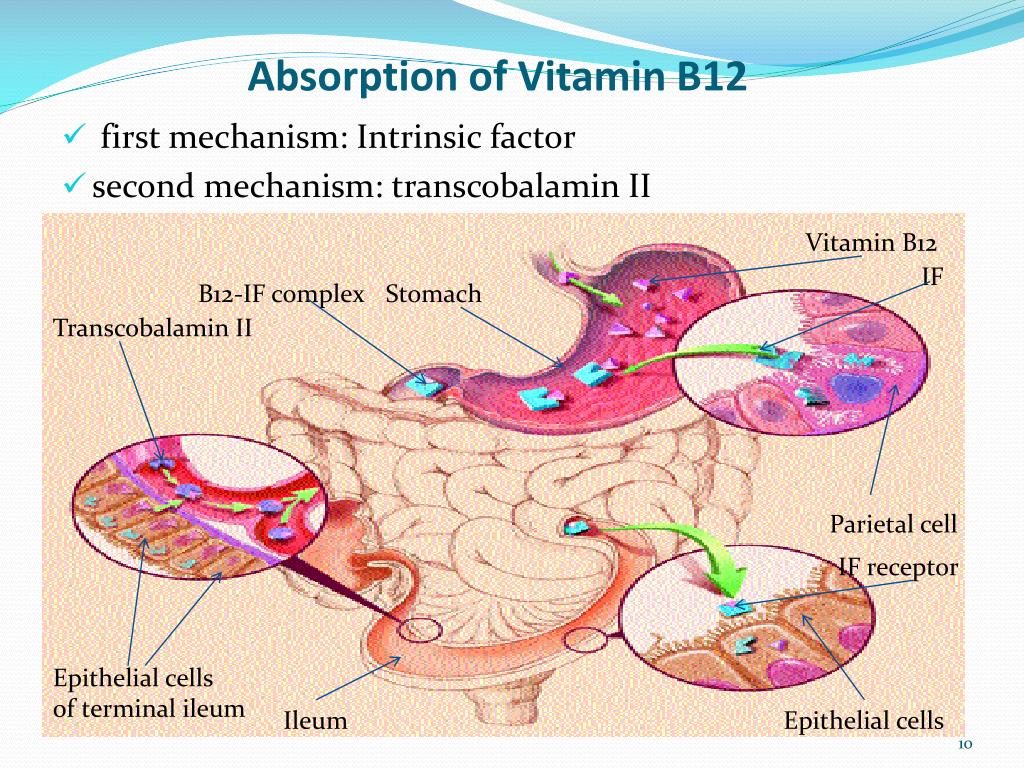
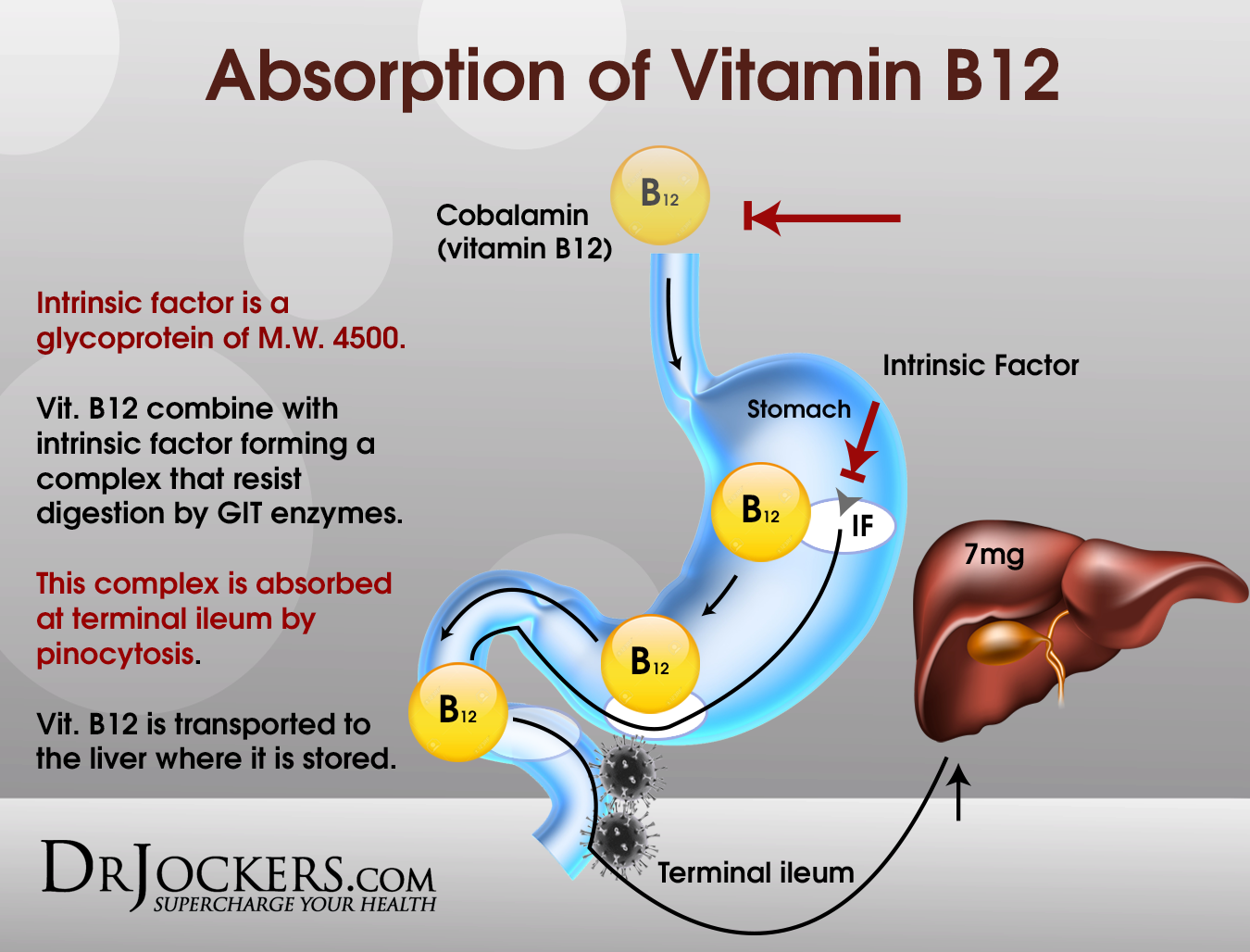
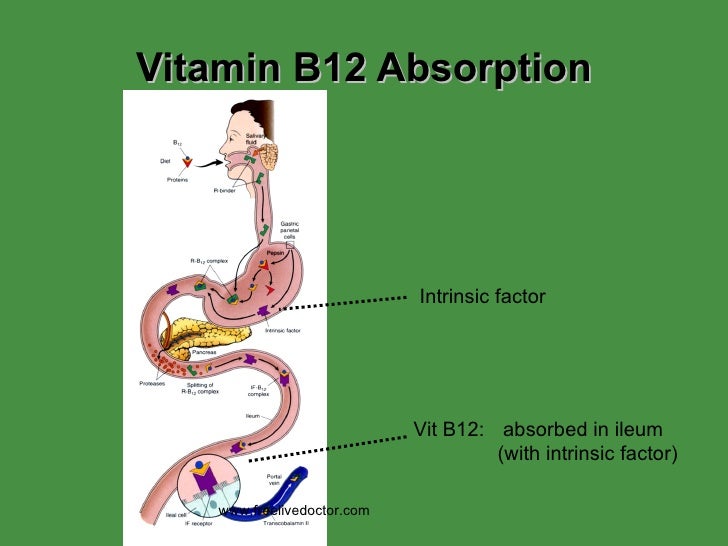

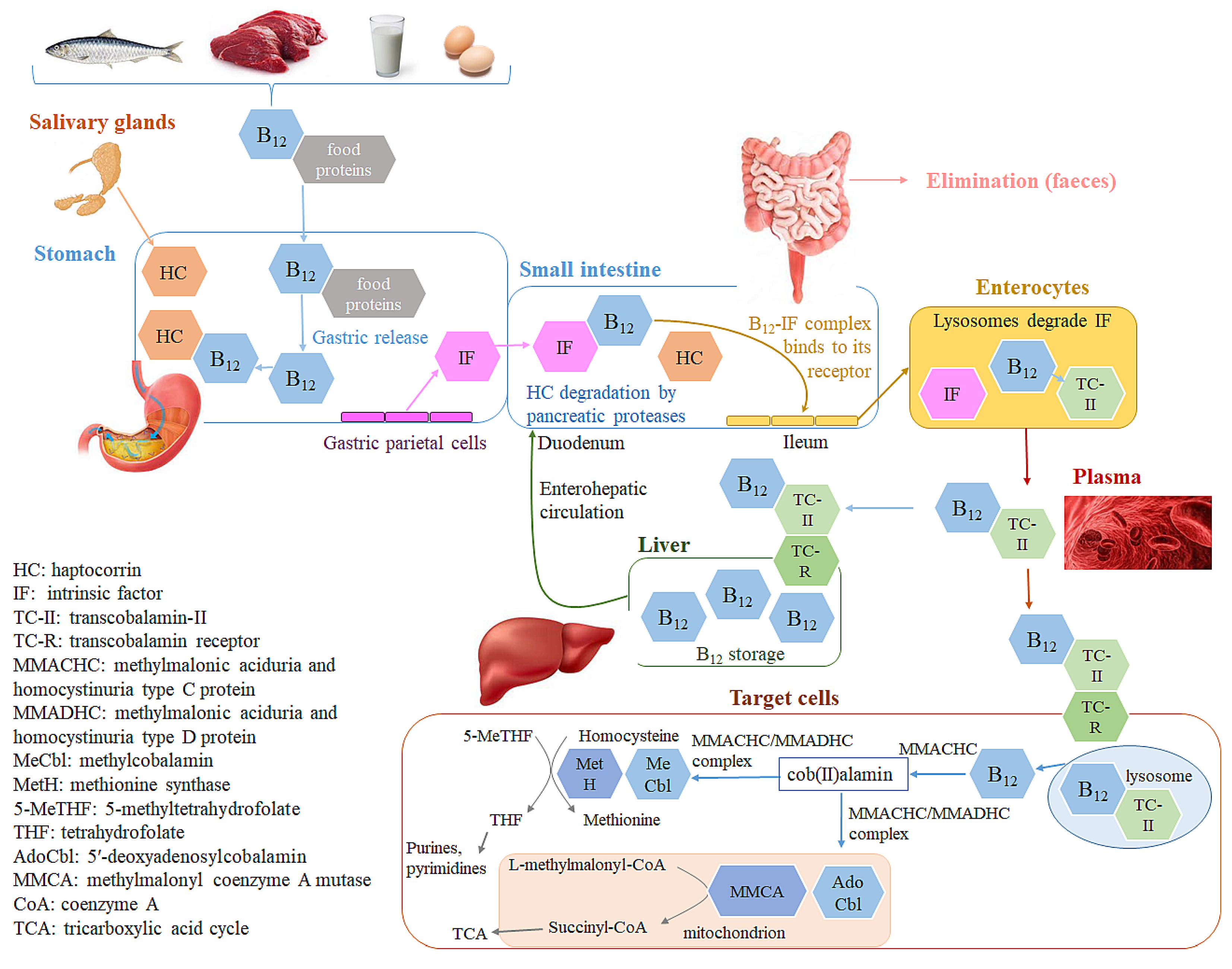



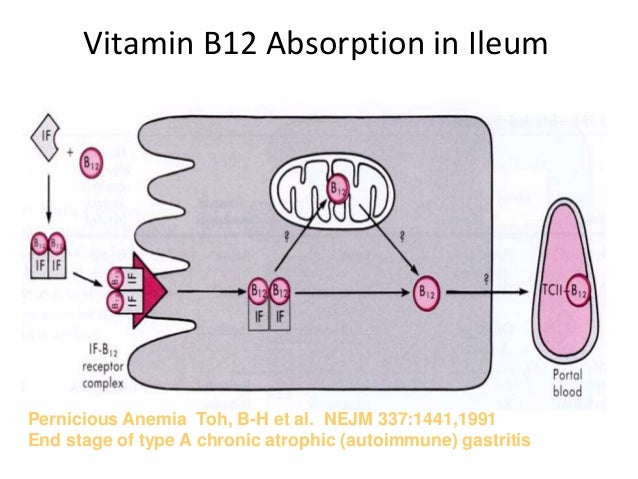
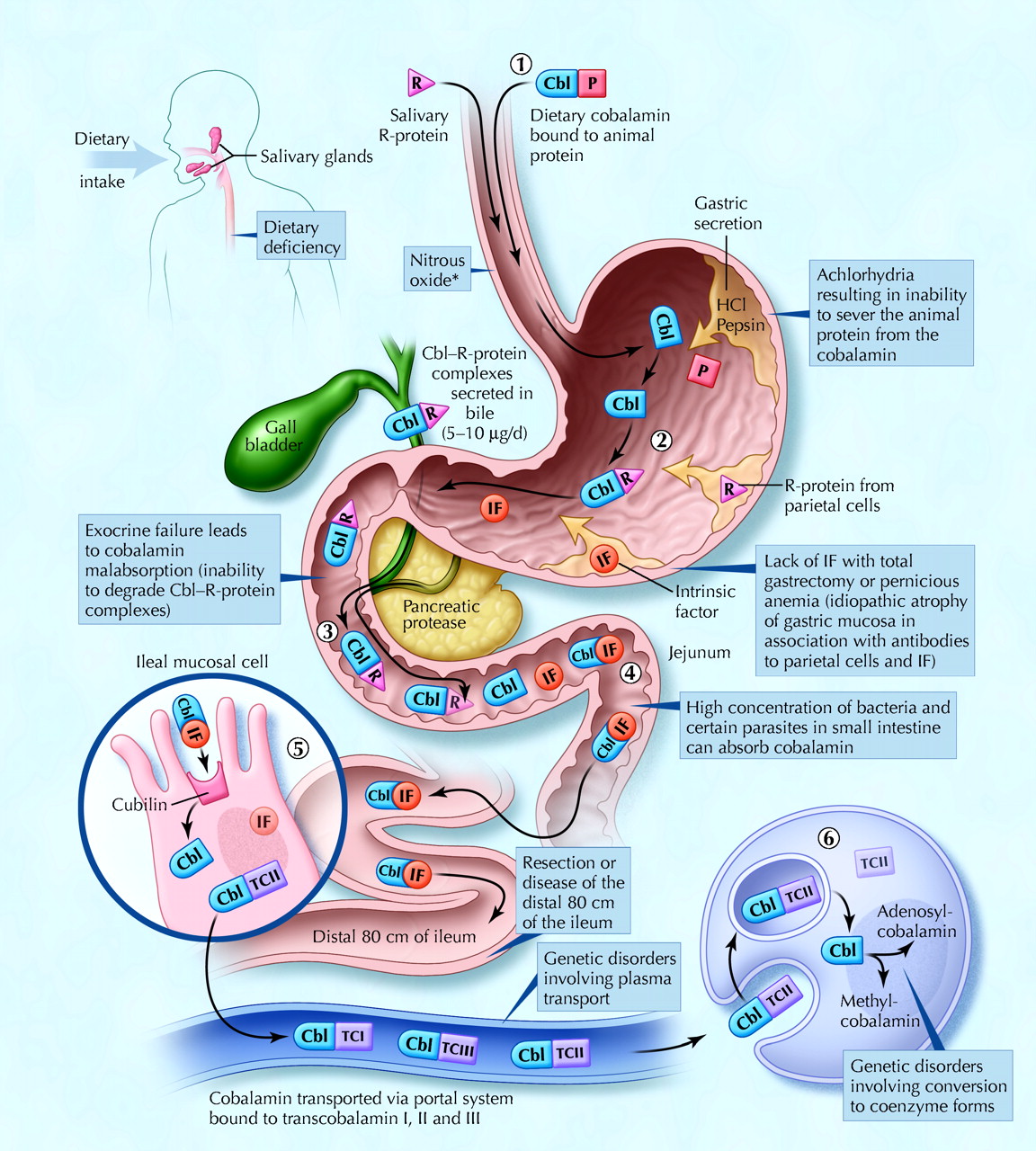
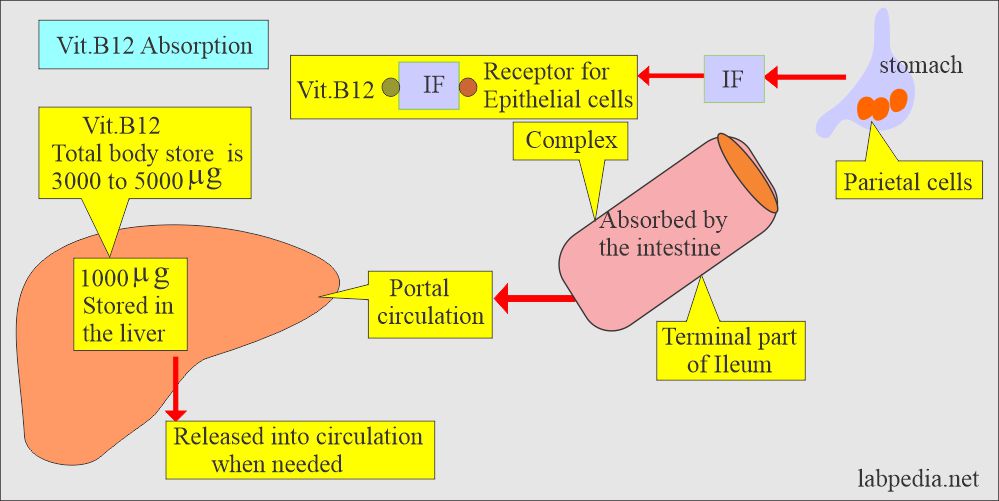
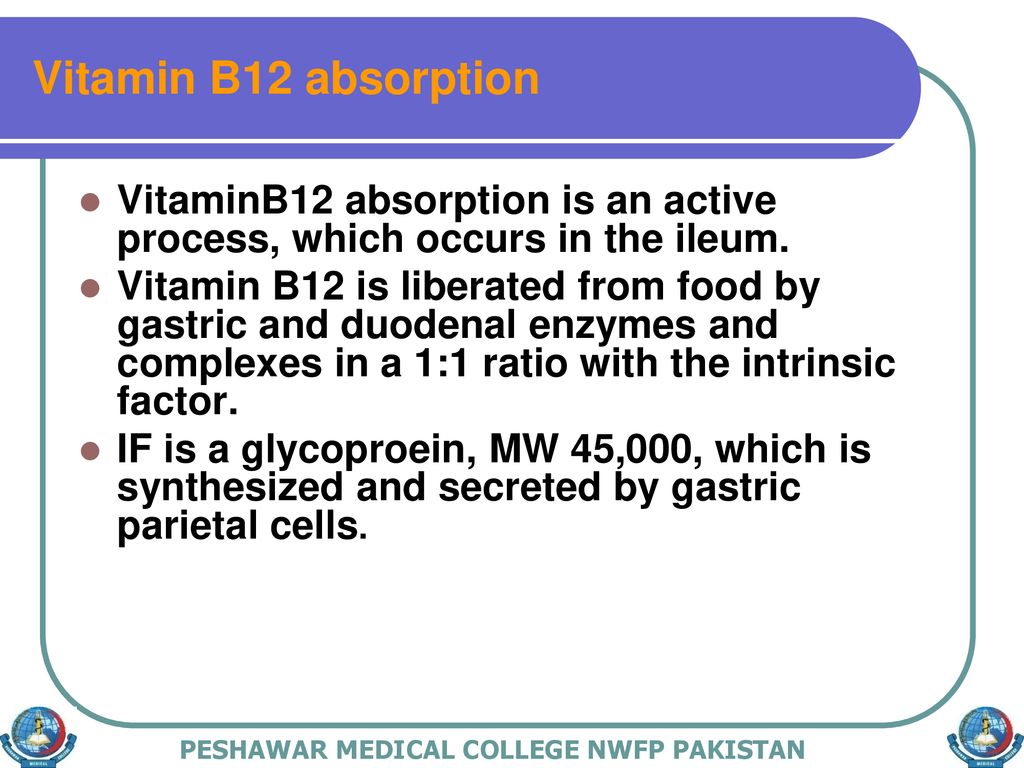

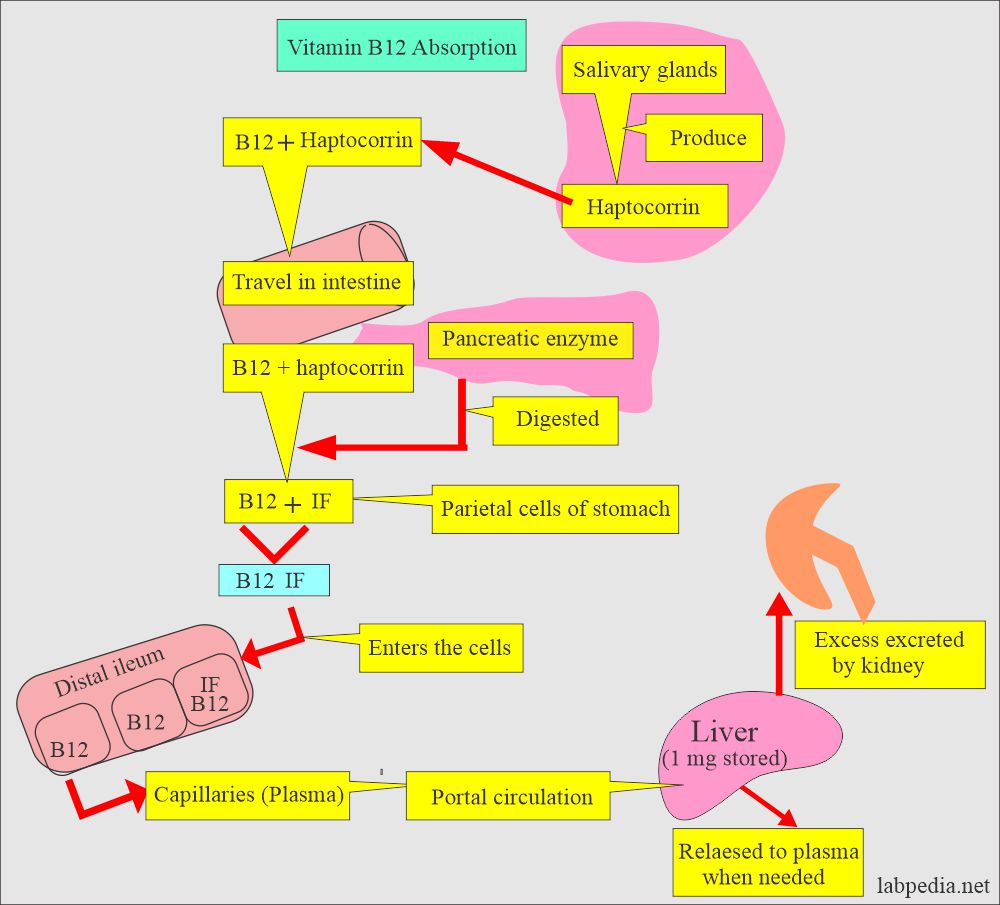


:+Oral+Absorption.jpg)
